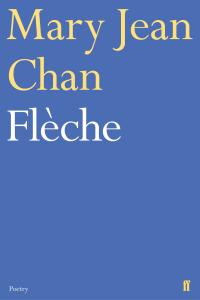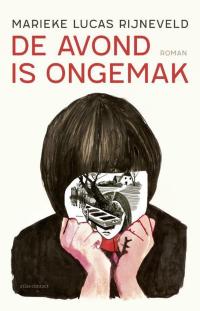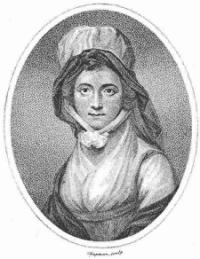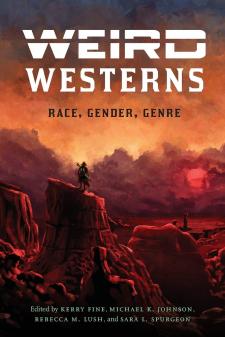Fleurs du Mal Magazine



Belijdenis
Je moet niets verbranden. Zelfs geen mieren
als je denkt dat die een oprukkend leger zijn.
Dat heb ik wel gebiecht ja, dat heb ik toen wel
gebiecht. Ego te absolvo a peccatis tuis in nomine
Patris et Filii et Spiritus Sancti. Amen. Amen.
Ach, die 10 Ave Maria’s en 5 Paternosters
waarmee ik mijn zieltje destijds schoon waste.
Het blonk daarna weer als een ansjovisbuikje.
Nooit echt heb ik me onderworpen aan de sluier
van de dwang. Onrustige biechtelingen waren
er genoeg hoor, bang mokkend in hun eigen
schaduw. Vierduizend mijl dik waren voor hen
de muren van de hel. Zij leerden de beschroomde
tere tinten van berouw nooit kennen. Bleven
verhard in wrede gedachten, grauw als gummi.
Bert Bevers
Eerder verschenen bij Digther, Diksmuide, november 2013
Bert Bevers is a poet and writer who lives and works in Antwerp (Be)
• fleursdumal.nl magazine
More in: Archive A-B, Archive A-B, Bevers, Bert
Flèche (the French word for ‘arrow’) is an offensive technique commonly used in fencing, a sport of Mary Jean Chan’s young adult years, when she competed locally and internationally for her home city, Hong Kong.
This cross-linguistic pun presents the queer, non-white body as both vulnerable (‘flesh’) and weaponised (‘flèche’), and evokes the difficulties of reconciling one’s need for safety alongside the desire to shed one’s protective armour in order to fully embrace the world.
 Central to the collection is the figure of the poet’s mother, whose fragmented memories of political turmoil in twentieth-century China are sensitively threaded through the book in an eight-part poetic sequence, combined with recollections from Chan’s childhood.
Central to the collection is the figure of the poet’s mother, whose fragmented memories of political turmoil in twentieth-century China are sensitively threaded through the book in an eight-part poetic sequence, combined with recollections from Chan’s childhood.
As complex themes of multilingualism, queerness, psychoanalysis and cultural history emerge, so too does a richly imagined personal, maternal and national biography.
The result is a series of poems that feel urgent and true, dazzling and devastating by turns.
Mary Jean Chan grew up in Hong Kong and studied at Swarthmore College, the University of Oxford and Royal Holloway, University of London. Her debut pamphlet, A Hurry of English, was selected as the 2018 Poetry Book Society Summer Pamphlet Choice. In 2017, Chan’s poem ‘//’ was shortlisted for the 2017 Forward Prize for Best Single Poem. She is a Ledbury Poetry Critic, editor of Oxford Poetry, advisory board member at the Poetry Translation Centre and member of the Folio Prize Academy. She is a Lecturer in Creative Writing (Poetry) at Oxford Brookes University and lives in London.
Flèche
Mary Jean Chan
Publisher: Faber & Faber
Series: Faber Poetry
Paperback
88 pages
Language: English
ISBN-10: 0571348041
ISBN-13: 978-0571348046
March 31, 2020
£10.99
# new poetry
Mary Jean Chan
Flèche
• fleursdumal.nl magazine
More in: #Editors Choice Archiv, - Book News, Archive C-D, Archive C-D
The poet laureate of Punk holds forth in inimitable fashion about his sprawling, idiosyncratic career and the stars and artists with whom he has worked and been championed by. Brimming with his distinctive dry humour and wordplay, I Wanna Be Yours is a beautifully rambling memoir for lifelong fans and new converts alike.
This is a memoir as wry, funny, moving and vivid as only John Cooper Clarke could deliver. Inimitable and iconic, his book will be a joy for both lifelong fans and for a whole new generation.
 John Cooper Clarke is a phenomenon: Poet Laureate of Punk, rock star, fashion icon, TV and radio presenter, social and cultural commentator, reluctant national treasure. At 5 feet 11 inches (116lb, 32in chest, 27in waist), in trademark suit jacket, skin-tight drainpipes and dark glasses, with jet-black back-combed hair and mouth full of gold teeth, he is instantly recognizable. As a writer his voice is equally unmistakable and his inimitable dry Salford drawl shines through the prose.
John Cooper Clarke is a phenomenon: Poet Laureate of Punk, rock star, fashion icon, TV and radio presenter, social and cultural commentator, reluctant national treasure. At 5 feet 11 inches (116lb, 32in chest, 27in waist), in trademark suit jacket, skin-tight drainpipes and dark glasses, with jet-black back-combed hair and mouth full of gold teeth, he is instantly recognizable. As a writer his voice is equally unmistakable and his inimitable dry Salford drawl shines through the prose.
I Wanna Be Yours covers an extraordinary life, filled with remarkable personalities: from Nico to Chuck Berry, from all the great punks to Bernard Manning, and on to more recent fans and collaborators Alex Turner and Plan B – who have championed his work. Interspersed with stories of his rock and roll and performing career, John also reveals his boggling encyclopaedic knowledge of twentieth-century popular culture, his private passions and guilty pleasures: from Baudelaire, Pam Ayres and Rimbaud to football to Coronation Street, comprising horse racing and gambling, politics and jokes – and much more.
‘John Cooper Clarke is one of Britain’s outstanding poets. His anarchic punk poetry has thrilled people for decades and his no nonsense approach to his work and life in general has appealed to many people including myself for many years. Long may his slender frame and spiky top produce words and deeds that keep us on our toes and alive to the wonders of the world.’ – Sir Paul McCartney
I Wanna Be Yours (Hardback)
John Cooper Clarke (author)
Publisher: Pan Macmillan
ISBN: 9781509896103
Number of pages: 320
Hardback
Coming soon
01/10/2020
£20.00
# new books
John Cooper Clarke
I Wanna Be Yours
• fleursdumal.nl magazine
More in: # Punk poetry, #Archive A-Z Sound Poetry, *Concrete + Visual Poetry A-E, Archive C-D, Archive C-D

Als der blaue Reiter war gefallen …
Griffen unsere Hände sich wie Ringe;-
Küßten uns wie Brüder auf den Mund.
Harfen wurden unsere Augen,
Als sie weinten: Himmlisches Konzert.
Nun sind unsere Herzen Waisenengel.
Seine tiefgekränkte Gottheit
Ist erloschen in dem Bilde: Tierschicksale.
Else Lasker-Schüler
(1869 – 1945)
Als der blaue Reiter war gefallen . . .
(Nachruf von Else Lasker-Schüler an den 1916
im 1.Weltkrieg gefallenen Franz Marc)
• fleursdumal.nl magazine
More in: *War Poetry Archive, Archive K-L, Archive K-L, Lasker-Schüler, Else

Independent Bookstore Day
saturday august 29, 2020
• more on website indiebookstoreday
• https://www.indiebookstoreday.com/
• fleursdumal.nl magazine
More in: - Book Lovers, - Book News, - Bookstores, Art & Literature News, AUDIO, CINEMA, RADIO & TV, FDM in New York, The Art of Reading

The Titanic
Out of the misty North
A stealthy foeman stole;
Far from the haunted Pole
On the wide sea went he forth,
And he met a giant ship
As he scoured the sea for toll
It cannot reach its goal
Crushed in his icy grip.
“Of every four just three”
This was his deadly dole.
Unseen he called the roll
Ah! a cold grave is the Sea.
Yet the Sea is not the end,
And Life is not the whole.
Over each heroic soul
Shall Eternity extend.
Helen Leah Reed
(1864–1926)
The Titanic
(Poem)
• fleursdumal.nl magazine
More in: #More Poetry Archives, Archive Q-R, Archive Q-R
Here, the bodies of indigenous, Latinx, black and brown women are simultaneously the body politic and the body ecstatic, and portrayed with a glowing intimacy: the alphabet of a hand in the dark, the hips’ silvered percussion, a thigh’s red-gold geometry, the emerald tigers that leap in a throat.
 Natalie Diaz was born and raised in the Fort Mojave Indian Village in Needles, California, on the banks of the Colorado River. She is Mojave and an enrolled member of the Gila River Indian Tribe.
Natalie Diaz was born and raised in the Fort Mojave Indian Village in Needles, California, on the banks of the Colorado River. She is Mojave and an enrolled member of the Gila River Indian Tribe.
Her first poetry collection, When My Brother Was an Aztec, won an American Book Award. She is a 2018 MacArthur Fellow, as well as a Lannan Literary Fellow and a Native Arts and Cultures Foundation Artist Fellow.
She was awarded the Holmes National Poetry Prize and a Hodder Fellowship from Princeton University. She is a member of the Board of Trustees for the United States Artists, where she is an alumna of the Ford Fellowship. Diaz is the Maxine and Jonathan Marshall Chair in Modern and Contemporary Poetry at Arizona State University.
Postcolonial Love Poem
Natalie Diaz
Paperback
128 pages
Publisher: Faber & Faber
Published: 16/07/2020
Language: English
ISBN-10: 0571359868
ISBN-13: 978-0571359868
£10.99
# new poetry
Postcolonial Love Poem
by Natalie Diaz
• fleursdumal.nl magazine
More in: #Archive Native American Library, #Editors Choice Archiv, - Book News, Archive C-D, Archive C-D
Today, on Wednesday 26 August, The Discomfort of Evening, written by Marieke Lucas Rijneveld and translated from Dutch by Michele Hutchison, is announced as the winner of The 2020 International Booker Prize.
 The £50,000 prize will be split between Marieke Lucas Rijneveld and Michele Hutchison, giving both the author and translator equal recognition.
The £50,000 prize will be split between Marieke Lucas Rijneveld and Michele Hutchison, giving both the author and translator equal recognition.
The winner was announced by chair of the judges, Ted Hodgkinson, this evening, at a digital event which was livestreamed across The Booker Prizes Facebook and YouTube pages. The Dutch edition was a bestseller in the Netherlands, where it won the prestigious ANV Debut Prize.
The Discomfort of Evening was chosen from a shortlist of six books during a lengthy and rigorous judging process, by a panel of five judges, chaired by Ted Hodgkinson, Head of Literature and Spoken Word at Southbank Centre. The panel also includes: Lucie Campos, director of the Villa Gillet, France’s centre for international writing; Man Booker International Prize-winning translator and writer Jennifer Croft; Booker Prize longlisted author Valeria Luiselli and writer, poet and musician Jeet Thayil, whose novel Narcopolis was shortlisted for the Man Booker Prize in 2012.
Chair of the judges, Ted Hodgkinson says: ‘We set ourselves an immense task in selecting a winner from our superb shortlist, filled with fiction bold enough to upend mythic foundations and burst the banks of the novel itself. From this exceptional field, and against an extraordinary backdrop, we were looking for a book that goes beyond echoing our dystopian present and possesses a timeless charge. Combining a disarming new sensibility with a translation of singular sensitivity, The Discomfort of Evening is a tender and visceral evocation of a childhood caught between shame and salvation, and a deeply deserving winner of The 2020 International Booker Prize.’
Born in April 1991 in Nieuwendijk, Netherlands, Marieke Lucas Rijneveld, whose preferred pronouns are they/them, is the youngest author to win The International Booker Prize. The Dutch author grew up in a Reformed farming family in North Brabant before moving to Utrecht and, alongside their writing career, Rijneveld still works on a dairy farm. One of the most exciting new voices in Dutch literature, Rijneveld has already won awards for both their first poetry collection Calfskin and their debut novel The Discomfort of Evening.
Following a stint as an editor, Michele Hutchison became a literary translator from Dutch. Her translations include the bestselling An American Princess by Annejet van der Zijl, Mona in Three Acts by Griet op de Beeck and Seaweed by Miek Zwamborn. She is also co-author of The Happiest Kids in the World.
 The Discomfort of Evening tells the story of Jas and her devout farming family in a strict Christian community in rural Netherlands. One winter’s day, her older brother joins an ice skating trip. Resentful at being left alone, she attempts to bargain with God pitting the life of her pet rabbit against that of her brother; he never returns. As grief overwhelms the farm, Jas succumbs to a vortex of increasingly disturbing fantasies, watching her family disintegrate into a darkness that threatens to derail them all.
The Discomfort of Evening tells the story of Jas and her devout farming family in a strict Christian community in rural Netherlands. One winter’s day, her older brother joins an ice skating trip. Resentful at being left alone, she attempts to bargain with God pitting the life of her pet rabbit against that of her brother; he never returns. As grief overwhelms the farm, Jas succumbs to a vortex of increasingly disturbing fantasies, watching her family disintegrate into a darkness that threatens to derail them all.
The Guardian described The Discomfort of Evening as ‘an unflinching study of a family falling apart in the madness of grief, rendered all the more unnerving for the childishly plain, undramatic way their compulsive behaviours are reported’.
The Financial Times said ‘there is a bold beauty to the book… by using Jas’s everyday world as a metaphor for loneliness and fear, Rijneveld has created something exceptional.’
Megan Nolan for the New Statesman commented that the character of Jas ‘produces a truly haunting and savage loneliness, communicated by Rijneveld with an agile intensity I have rarely encountered.’
The International Booker Prize is awarded every year for a single book that is translated into English and published in the UK or Ireland. It aims to encourage more publishing and reading of quality fiction from all over the world and to promote the work of translators. Both novels and short-story collections are eligible. The contribution of both author and translator is given equal recognition, with the £50,000 prize split between them.
This year the judges considered 124 books, translated from 30 languages.
(Together, the two Booker Prizes reward the best fiction from around the globe that is published in English in the UK and Ireland. The Booker Prizes are sponsored by Crankstart, a charitable foundation.)
# More on website The Booker Prize

Selfportrait (Wikimedia)
Marieke Lucas Rijneveld
Dutch writer and poet (1991)
Novels
2018 – De avond is ongemak
2020 – Engels: The Discomfort of Evening, translation Michele Hutchison (Booker International Prize 2020)
Collections of poetry
2015 – Kalfsvlies (C. Buddingh’-prijs 2016) (Ida Gerhardt Poëzieprijs 2020)
2019 – Fantoommerrie
• fleursdumal.nl magazine
More in: - Book News, Archive Q-R, Archive Q-R, AUDIO, CINEMA, RADIO & TV, Awards & Prizes, Marieke Lucas Rijneveld, Rijneveld, Marieke Lucas

Automne Malade
Automne malade et adoré
Tu mourras quand l’ouragan soufflera dans les roseraies
Quand il aura neigé
Dans les vergers
Pauvre automne
Meurs en blancheur et en richesse
De neige et de fruits mûrs
Au fond du ciel
Des éperviers planent
Sur les nixes nicettes aux cheveux verts et naines
Qui n’ont jamais aimé
Aux lisières lointaines
Les cerfs ont bramé
Et que j’aime ô saison que j’aime tes rumeurs
Les fruits tombant sans qu’on les cueille
Le vent et la forêt qui pleurent
Toutes leurs larmes en automne feuille à feuille
Les feuilles
Qu’on foule
Un train
Qui roule
La vie
S’écoule
Guillaume Apollinaire
(1880 – 1918)
Automne Malade
(Alcools – 1913)
• fleursdumal.nl magazine
More in: Apollinaire, Guillaume, Archive A-B, Archive A-B, Guillaume Apollinaire

Sonnet XXVI
O partial MEMORY! Years, that fled too fast,
From thee in more than pristine beauty rise,
Forgotten all the transient tears and sighs
Somewhat that dimm’d their brightness! Thou hast chas’d
Each hovering mist from the soft Suns, that grac’d
Our fresh, gay morn of Youth; – the Heart’s high prize,
Friendship, – and all that charm’d us in the eyes
Of yet unutter’d Love. – So pleasures past,
That in thy crystal prism thus glow sublime,
Beam on the gloom’d and disappointed Mind
When Youth and Health, in the chill’d grasp of Time,
Shudder and fade; – and cypress buds we find
Ordain’d Life’s blighted roses to supply,
While but reflected shine the golden lights of Joy.
Anna Seward
(1742-1809)
Sonnet XXVI
(O partial MEMORY!)
• fleursdumal.nl magazine
More in: #Editors Choice Archiv, Archive S-T, Archive S-T
Weird Westerns is an exploration of the hybrid western genre—an increasingly popular and visible form that mixes western themes, iconography, settings, and conventions with elements drawn from other genres, such as science fiction, horror, and fantasy.
 Despite frequent declarations of the western’s death, the genre is now defined in part by its zombie-like ability to survive in American popular culture in weird, reanimated, and reassembled forms.
Despite frequent declarations of the western’s death, the genre is now defined in part by its zombie-like ability to survive in American popular culture in weird, reanimated, and reassembled forms.
The essays in Weird Westerns analyze a wide range of texts, including those by Native American authors Stephen Graham Jones (Blackfeet) and William Sanders (Cherokee); the cult television series Firefly and The Walking Dead; the mainstream feature films Suicide Squad and Django Unchained; the avant-garde and bizarre fiction of Joe R. Lansdale; the tabletop roleplaying game Deadlands: The Weird West; and the comic book series Wynonna Earp.
The essays explore how these weird westerns challenge conventional representations by destabilizing or subverting the centrality of the heterosexual, white, male hero but also often surprisingly reinforce existing paradigms in their inability to imagine an existence outside of colonial frameworks.
Author Bio:
Kerry Fine is an instructor in the Department of English at Arizona State University. Michael K. Johnson is a professor of English at the University of Maine–Farmington. Rebecca M. Lush is an associate professor at California State University, San Marcos. Sara L. Spurgeon is a professor of American literature at Texas Tech University.
Postwestern Horizons:
Postwestern Horizons encourages scholarship which rethinks and reimagines traditional western scholarship by challenging predominant paradigms, including revisionist ones, and dislocating our sense of region. By moving past the West as a national place, process, and idea to more methodologically innovative, transnationally daring, and theoretically fertile horizons of scholarship, this series encourages new ways of conceiving cultural production and reception. Postwestern Horizons encompasses studies of visual culture, environmental studies, literature, history, film studies, and much more.
Weird Westerns
Race, Gender, Genre
Edited by Kerry Fine, Michael K. Johnson, Rebecca M. Lush, and Sara L. Spurgeon
Postwestern Horizons Series
468 pages
Index
Paperback
August 2020
978-1-4962-2178-0
$35.00
Hardcover
August 2020
978-1-4962-2116-2
$70.00
# new books
Weird Westerns.
Race, Gender, Genre
• fleursdumal.nl magazine
More in: - Book News, - Bookstores, Art & Literature News, AUDIO, CINEMA, RADIO & TV, NONFICTION: ESSAYS & STORIES, Western Non-Fiction

Le vent
Force la grotte où marche le vent,
source du parfum de l’aurore
qu’il verse au seuil vespéral,
et de la jeunesse des futaies lointaines
qu’il cache dans la tendresse des herbes,
et de la splendeur du soleil moribond
qu’il ressuscite sur les collines prolongées.
Vois-le en songe quand il commence à poindre
et s’apprête à se ramifier comme une liane vivante ;
attends sur les rives des visions :
à peine éclos, il apprend à voler
puis déploie ses ailes comme un oiseau sauvage
et vient s’égarer dans les vergers
où il saccage fleurs et fruits.
Quelle liane, et d’où surgie ?
La voici qui enlace tous les arbres :
depuis les jamrosas parfumés,
qui forment un buisson dans l’Est,
jusqu’à la voûte des bougainvillées
et l’élan des dragonniers qui ondulent
sur les terrasses d’Iarive ;
depuis les mille cœurs des rosiers
qui s’offrent au sommet des tiges vertes,
et les gargoulettes des lys qui ne se s’ouvrent pas
pour pouvoir recueillir la rosée des crépuscules,
jusqu’à ces autres plantes sans nombre
dont on ignore encore le vrai nom
et que seuls vous connaissez, ô mes songes.
Oui, jusqu’à ces cheveux qui tremblotent
aux tempes de la vieille femme :
dernières fleurs de ses jours perdus
qui mendient un baiser au bord de la tombe –
et jusqu’au lambe que la femme-enfant
laisse traîner un peu en souriant
et qu’elle agite dans le brouillard !
– Et cet oiseau que tu ne vois pas
mais qui te frappe le front
et qui picore dans tes épaules
et griffe jusqu’à ta nuque :
quel oiseau est-il, l’oiseau du vent,
cet oiseau ivre qui titube
comme une roussette aux ailes déchirées ?
– Légendes et légendes, fables et fables…
Innombrables sont les légendes
qui peuvent forcer la grotte
où a poussé cette liane vivante
qui vient enlacer tous les arbres ;
innombrables, les fables qui entourent
l’éclosion de cet oiseau immatériel
qui tombe puis reprend son vol ;
mais il en est deux autres qui
me paraissent neuves
et que je n’ai connues que ces jours-ci :
tournoyait derrière ma porte
le vent humide de l’hiver,
tournoyait comme nos enfants
qui se cherchent et se cachent
quand s’illumine l’automne ;
tournoyait avec violence
comme un sanglier poursuivi,
ou un bœuf sauvage :
– D’où peut-il venir si ce n’est
des forêts ou du désert ?
disais-je. Puis,
lointaine et presque inaudible,
plus rien qu’une rumeur comme
en cèlent les coquillages :
– Il vient de l’océan, disais-je, le vent…
Jean-Joseph Rabearivelo
(1901? 1903? – 1937)
Le vent (poème)
• fleursdumal.nl magazine
More in: Archive Q-R, Archive Q-R, Jean-Joseph Rabearivelo
Thank you for reading Fleurs du Mal - magazine for art & literature